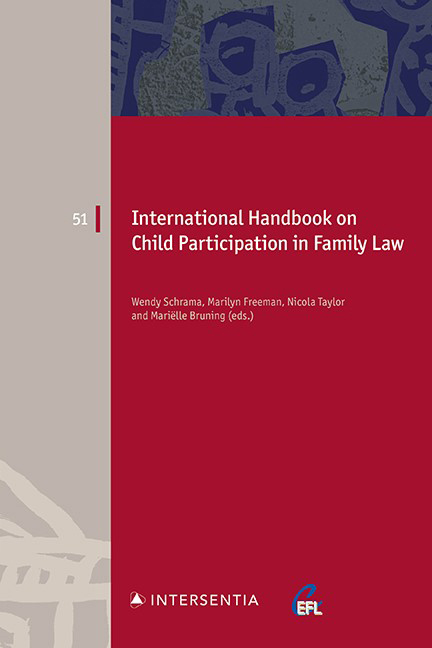Book contents
Croatia
Published online by Cambridge University Press: 10 December 2021
Summary
INTRODUCTION
More than 40 years before the adoption of the UN Convention on the Rights of the Child (UNCRC), the former Yugoslav, i.e. Croatian, Act on the Relationship between Parents and Children (1947) obliged social welfare centres to take account of the views of the child in divorce proceedings.
The right of the child to express their views was first incorporated into Croatian legislation in its current form in 1998. The incorporation resulted from an international responsibility laid down in the UNCRC. However, research conducted at Croatian courts 10 years later revealed that despite their explicit right to be heard, children rarely participate in proceedings concerning parental responsibility or contact with their parents either directly or with the assistance of the competent social welfare centre.
In addition the hearing of children, the concept of a special guardian for children has been introduced into a number of Family Acts since 1947. The special guardian's tasks include child representation and the protection of their interests when the interests of children and parents collide. Yet a number of recent studies have demonstrated that special guardians for children have often only formally represented the child, without being truly interested in their concerns. Hearing the child's views on their concerns and needs has almost been completely avoided.
According to its latest Concluding Observations (2014), the Committee on the Rights of the Child is concerned about the fact that hearing children's views is not adequately implemented in practice in all matters affecting them, including judicial and administrative proceedings, and that there is insufficient training of experts working with children in the Croatian legal system.
Croatia's international and European responsibilities have pushed the Croatian legislator into stronger regulation of the protection of children's procedural rights in family proceedings with the aim of achieving their full protection in practice. The strengthening of children's procedural rights in family proceedings has also been influenced by recent judgements of the European Court of Human Rights in this field, particularly by those referring to Croatia. Child participation in judicial and extrajudicial decision-making pertaining to family matters represents an important part of the Croatian legislative reform which resulted in the adoption of the 2015 Family Act (FA 2015).
- Type
- Chapter
- Information
- International Handbook on Child Participation in Family Law , pp. 143 - 156Publisher: IntersentiaPrint publication year: 2021



